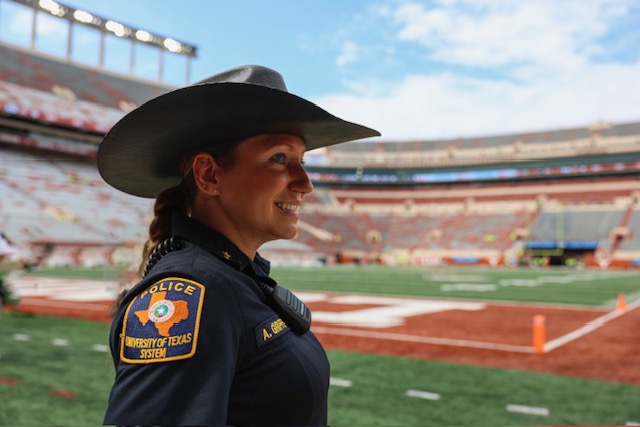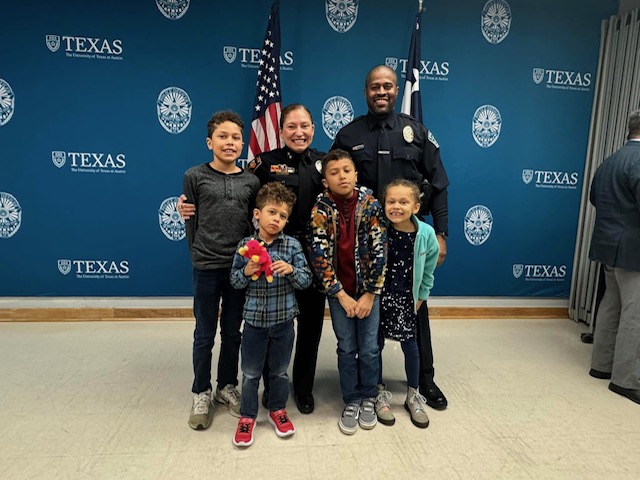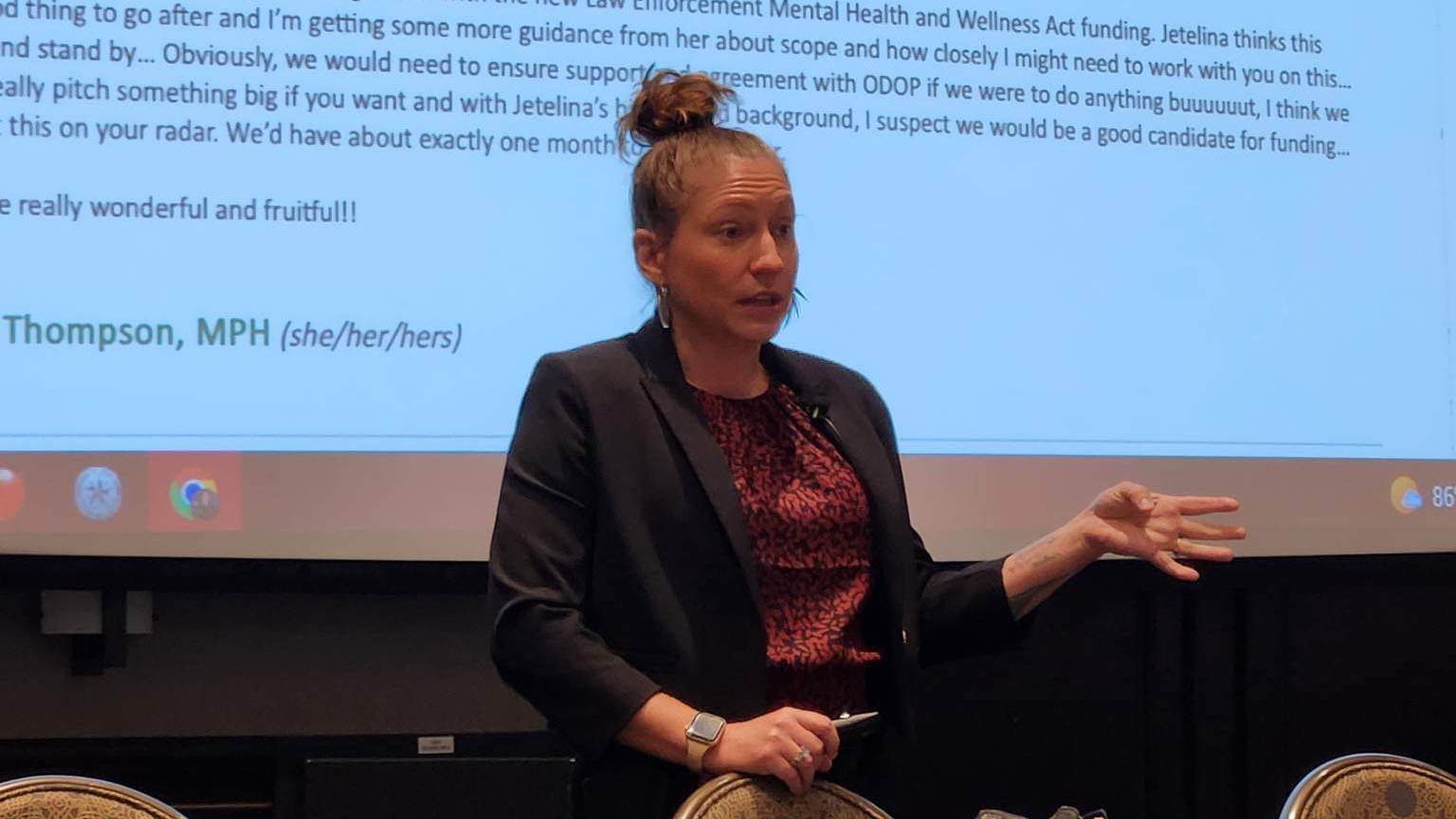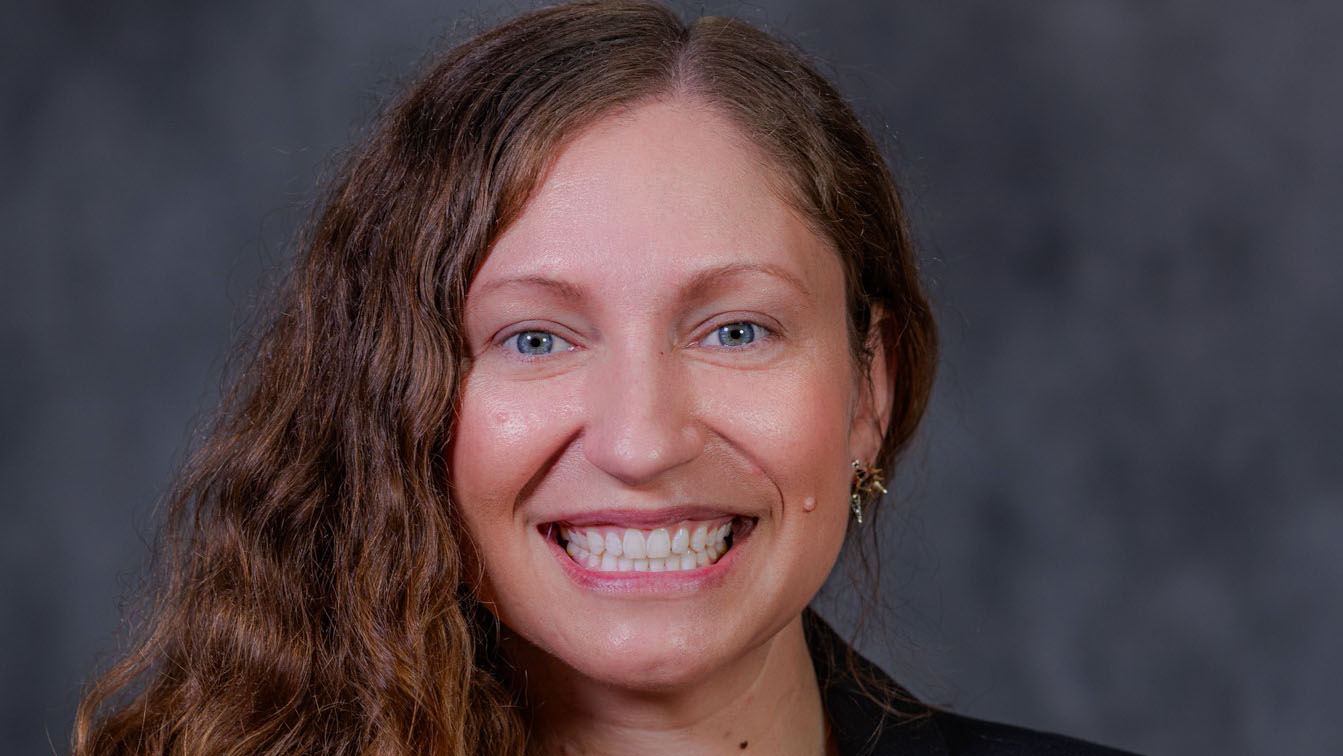How One Law Enforcement Executive Used Graduate Education to Achieve Her Dream Role

Ashley Griffin's path to becoming Chief of Police at the University of Colorado Boulder demonstrates the transformative power of strategic professional development in law enforcement leadership. As a working mother of four with a demanding executive role, Griffin found the flexibility and practical curriculum of the Master of Public Safety program perfectly aligned with her career ambitions and personal circumstances. Griffin was kind enough to talk to the School of Continuing and Professional Studies - she discussed how the right graduate program can accelerate career advancement while providing the essential skills and networks needed for senior leadership positions in public safety.
What led you to sign up for the Master of Public Safety program?
I had been following the Master of Public Safety program since before it was a degree program. I had reached out to Chief Longo in probably 2019, and he had explained that the program was still being evaluated by the university. It wasn't a degree program yet. I had put in my interest to go to the FBI National Academy. And when I looked at that program and saw what the Master of Public Safety was going to do by accepting a lot of those credits, to me, it was a no-brainer for me to just naturally apply for that and use that FBINA experience to contribute towards getting my master's a lot sooner.
How would you describe your experiences in this program?

One of the best things about the Master of Public Safety was the flexibility. The fact that it was 100% online that you could watch it when it was convenient for you, made it an ideal program for me. When I enrolled, I was working full time as a law enforcement executive. And then midway through, I got transferred to the police academy and then there’s my personal life on top of that: my husband's a police officer working night shift, and we have four young children. So trying to find a program that's going to be flexible so that I could manage all the different components going on, doing my coursework, still going to work, being a mom in the evenings was really important. And this program allowed for that, and I think that's probably one of the best parts about the program.
All the instructors are top notch, and you didn't feel like just a number in a program. Never once in the program did I feel like the homework or the coursework was just busy work; everything helps prepare you to be a successful law enforcement executive, whether or not you want to stay in your current position and just continue your education or whether you want to try to keep taking that next step. I knew I wanted to be a chief of police one day, and this coursework absolutely prepared you to take that next step from the classes about budget or having dialogues with community stakeholders.
What aspect of the program was most beneficial to you?
I am very goal oriented, and I try to find efficiencies where I can. And this program, it just fell in line perfectly. I was able to complete my degree in about a year. And just the flexibility of being able to get everything done online while I'm in Texas, but I know my professors are in Virginia or California, it offers that ability to continue your coursework. But you can still function and have your regular normal life. You just have to put in a little bit of extra work after hours to do the readings and the coursework, but eventually you get across the line, and it's the best feeling in the world.
How has completing this program affected you, both personally and professionally?

I knew that I wanted to be a chief of police. When I started looking at job posts of what people are looking for in chiefs of police, a lot of times, in the preferred qualifications, was a master's degree. I knew that that's something that I needed to get if I wanted to try to stand out as a candidate. The Master of Public Safety program checked that box for having a master's degree, but it did more than that. It was meeting all the different people that are in your program that are all over the United States or even the world, and you're sharing experiences and really connecting and having thoughtful dialogues with each other, and then the networks that you make.
They just do an awesome job of making the program feel like you're part of it. Completing this program not only gave me that master's degree, it had a thoughtful curriculum that helped prepare me to be a chief of police, but it also gave me a mentor and the professors, I still stay in contact with them. It's a lot more networking and friendships that you build on to help guide you for the rest of your career.
What would you say to anyone thinking about enrolling in the Master of Public Safety program?
If you're thinking about getting a master's degree, this is the program that you want to be part of. It's a top-notch program at a world-class university, and I tell everyone that I know that if they want to go back to school and get that master's degree, they should consider this program. So if you're thinking about it, stop thinking about it and just do it. It's amazing.


